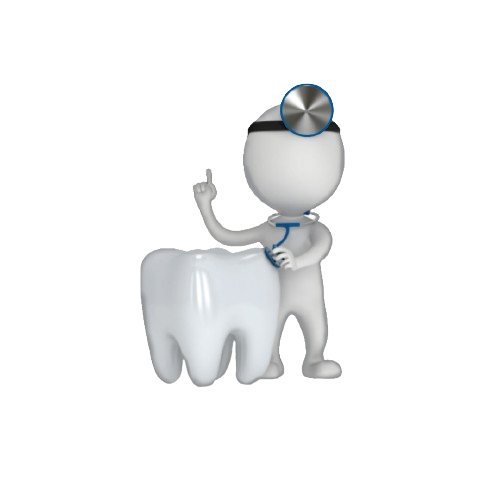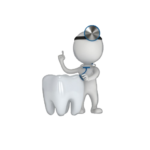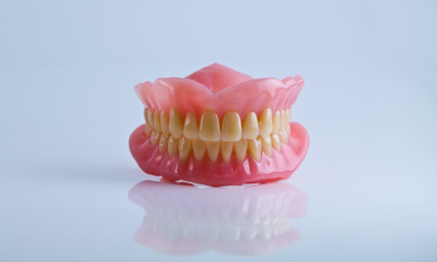Dentures are personalized dental appliances crafted to replace missing teeth and adjacent tissues within the oral cavity and they serve both functional and aesthetic purposes, helping individuals regain the ability to chew, speak clearly, and maintain facial structure after tooth loss.
Types of Dentures
Complete dentures: They are employed in cases where all natural teeth are absent. They feature a flesh-colored acrylic base that rests comfortably on the gums. The upper denture extends to cover the palate, whereas the lower denture is shaped like a horseshoe to accommodate the tongue.
Partial Dentures: These are used when natural teeth remain in the mouth. Partial dentures usually include artificial teeth affixed to a gum-colored plastic base, secured with a metal framework to ensure stability and proper positioning within the mouth.
Process of Getting Dentures
- Initial Consultation: A dentist evaluates the patient's oral health, discusses treatment options, and determines if dentures are the best solution.
- Impressions: Detailed impressions or molds of the patient's mouth are taken to create custom-fitted dentures that match the shape and contours of their gums.
- Fitting and Adjustments: Once the dentures are fabricated, several fittings may be necessary to ensure they fit comfortably and securely. Adjustments have been made to improve the fit and functionality.
- Final Placement: Following adjustments, the dentist offers guidance on denture care and usage. Subsequent appointments are scheduled to ensure proper fit and address any needed modifications.
Benefits of Dentures
- Restored Functionality: Dentures enable individuals to chew food more effectively, improving digestion and nutrition.
- Enhanced Aesthetics: Restore the natural appearance of the smile and support facial muscles, preventing sagging and giving a youthful appearance.
- Improved Speech: Missing teeth can affect speech clarity, and dentures help in articulating words more clearly.
Care and Maintenance
- Daily Cleaning: It should be brushed with a soft-bristled brush and non-abrasive denture cleanser to remove food particles and plaque.
- Storage: Dentures should be kept moist when not in use, either in water or a denture-cleaning solution, to prevent them from drying out or losing their shape.
- Regular Check-ups: Routine dental visits are essential to assess oral health, monitor the fit of dentures, and adjust as needed.
Considerations and Alternatives
- Adjustment Period: Initially, wearing dentures may feel awkward or uncomfortable, but most people adjust to them over time.
- Alternatives: Dental implants and dental bridges offer alternative solutions for replacing missing teeth, each presenting unique advantages tailored to the specific needs and preferences of the patient.




